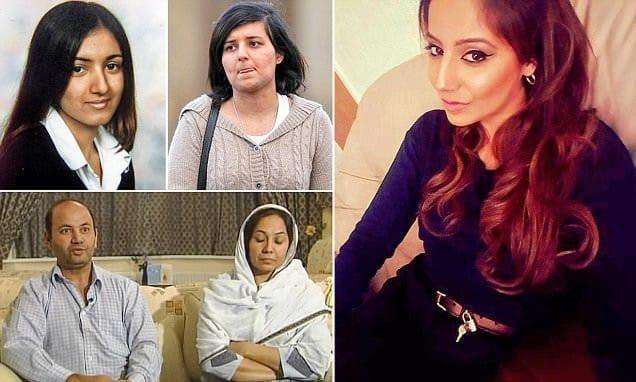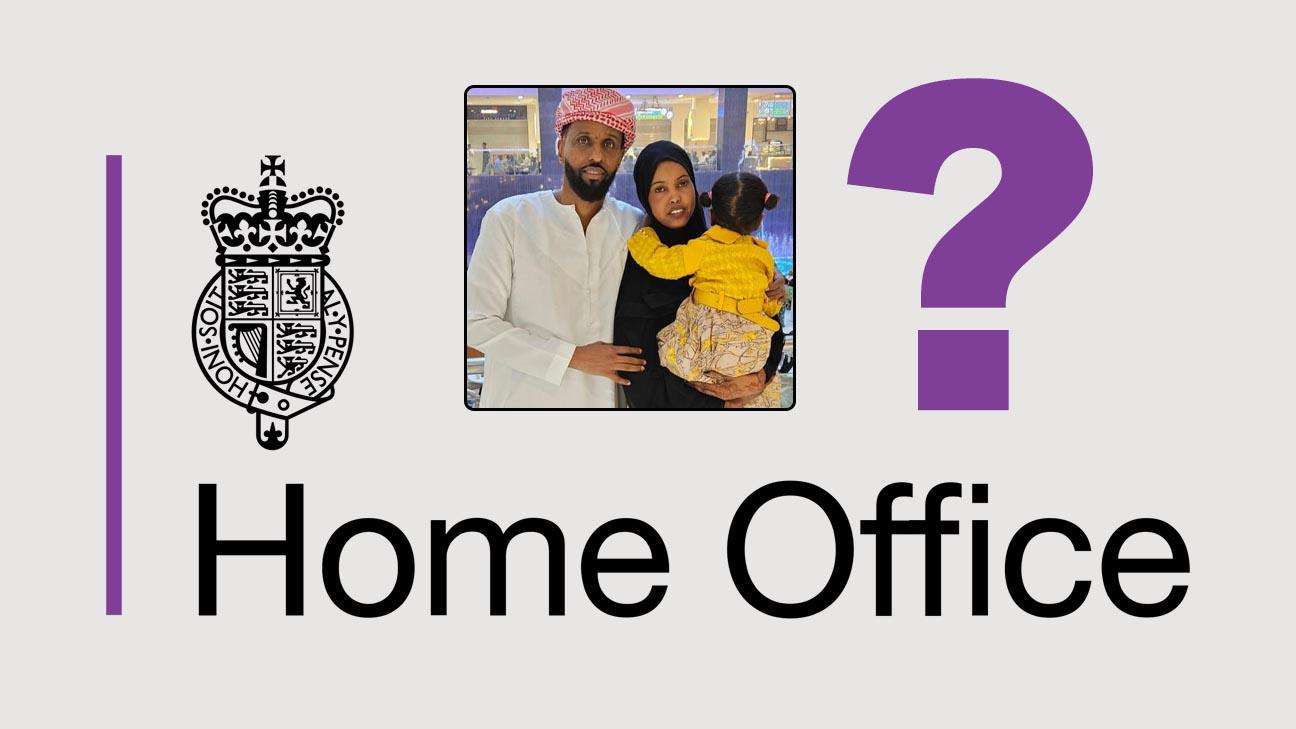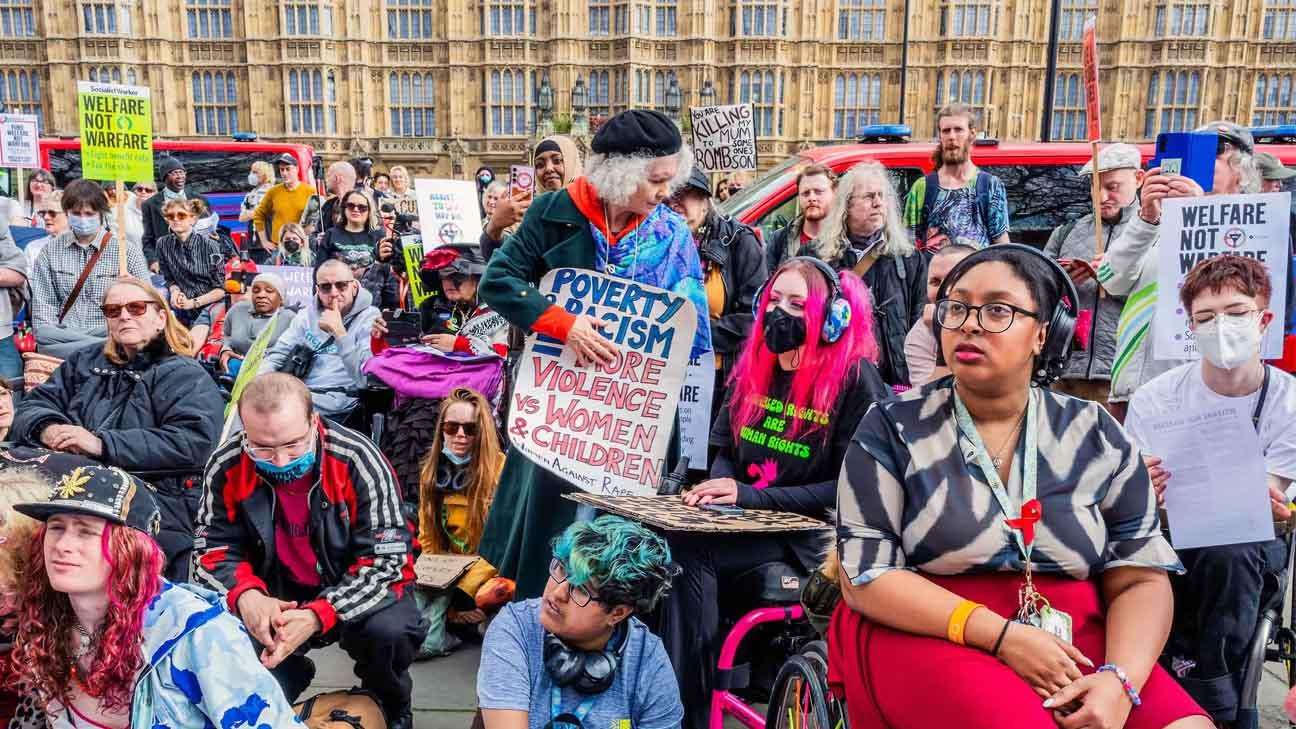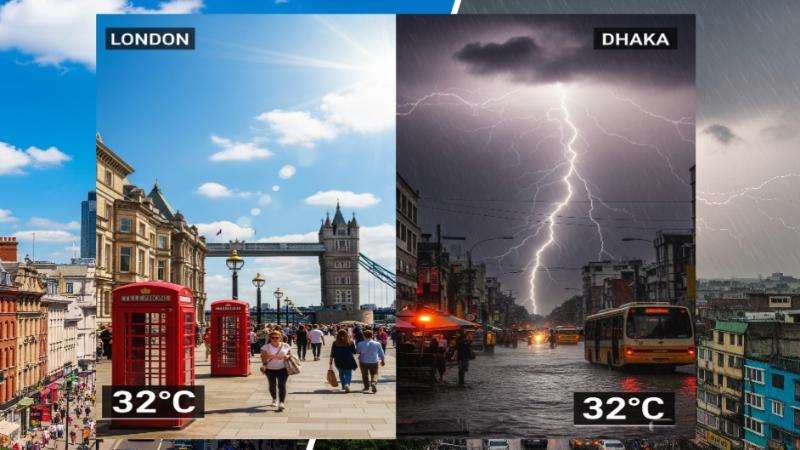A British man, Mohamed Jama, is speaking out against the Home Office's "cruel" decision to withhold thousands of pounds in visa fees paid for his wife, Ubah Abdi Mohamed, who tragically died before ever setting foot in the UK. This heartbreaking case has ignited a debate over the rigid inflexibility of immigration policies when confronted with profound human loss.
Mohamed Jama, 47, a British citizen living in north London, had diligently paid £1,938 for a spouse visa application and an additional £3,105 for the Immigration Health Surcharge (IHS) for his 25-year-old Kenyan wife. The IHS is typically intended to cover any NHS care an applicant might require upon arrival in the UK.
Tragedy struck shortly after good news. In March 2024, Ubah was diagnosed with oesophageal cancer. Despite her illness, the couple received the joyful confirmation on June 9th that her visa had been granted. However, their happiness was short-lived; just two days later, on June 11th, Ubah unexpectedly passed away in India, where she had been undergoing treatment.
Upon notifying the Home Office of his wife's death, Mr. Jama requested a refund of the IHS. His plea was met with a cold, pro forma letter, shockingly addressed to his deceased wife. The letter stated there were no exceptions to the policy of not refunding relatives after IHS payment, adding that if the "addressee" was "unhappy with this policy," they could file a complaint. This contrasts sharply with policies that allow refunds for refused or withdrawn applications, highlighting a stark absence of compassion for death-related circumstances.
"My wife was a very special person. There are no words to express the love between myself and my wife," a grieving Mr. Jama shared. He powerfully asserted, "This policy of not refunding the money to pay for any NHS treatment when the person hasn’t even entered the UK is very cruel. It’s common sense that the money should be refunded because my wife hasn’t used the NHS." Mr. Jama hopes his speaking out, even if it doesn't change his own outcome, might help others in similar situations in the future.
Adam Spray, a senior associate solicitor at Wilsons, strongly condemned the Home Office's stance. "This sad set of circumstances regrettably highlights the Home Office’s inflexible and all too often callous approach to real-world tragedies," he stated. "It is frankly unconscionable that the Home Office refused to refund any of the fees paid to the grieving widower and father at such a difficult time. We hope the Home Office will take time to reflect… and reconsider."
In response, Home Office sources reiterated their longstanding policy of not commenting on individual cases.
Meta Description: A grieving husband criticizes the Home Office for refusing to refund thousands in visa fees for his wife who died before reaching the UK, highlighting the department's "cruel" and "inflexible" policies.
Meta Keywords: Home Office, visa fee refund, immigration health surcharge, IHS, Mohamed Jama, Ubah Abdi Mohamed, immigration policy, UK visa, compassionate grounds, government policy, grieving husband, Wilsons Solicitors
The Unseen Cruelties of Home Office Bureaucracy
While this news story shines a light on one specific instance of the Home Office's rigidity, it's merely a glimpse into the broader "cruel" realities often experienced by those navigating the UK's immigration system. Beyond official statements and published guidelines, several harsh practices and systemic issues frequently arise, though they rarely gain widespread attention.
One significant concern is the perception of profit over humanity. The Home Office's fee structure for visa and immigration services is often viewed less as a cost-recovery mechanism and more as a substantial revenue stream. The refusal to issue refunds in deeply compassionate cases, such as Mr. Jama's, fuels the belief that financial gain is prioritized over individual suffering. While administrative costs are certainly involved in processing applications, the sheer scale of fees and the unwavering inflexibility in exceptional circumstances suggest a different motivation.
Another pervasive issue is bureaucratic indifference and a stark lack of discretion. The impersonal pro forma letter sent to Mr. Jama, incorrectly addressed to his deceased wife, starkly illustrates a systemic issue within the Home Office: an absence of individual empathy and the rigid application of rules. Caseworkers frequently operate under strict guidelines, even when basic common sense and human compassion would suggest a more flexible approach. This bureaucratic detachment can profoundly exacerbate the distress for individuals already enduring immense personal tragedy.
Furthermore, the emotional and financial toll of prolonged waiting times for visa decisions is immense, though not directly featured in this particular case. Families are frequently kept separated for months or even years, leading to severe mental health challenges, lost life opportunities, and the erosion of family bonds. The Home Office often provides minimal transparency or recourse for these extensive delays, leaving applicants in agonizing limbo.
Finally, a persistent issue is the lack of accessible and clear communication. The news story subtly touches on the difficulty of obtaining a human response, with the Home Office often defaulting to generic statements or, as here, a misguided letter. This deficit in accessible, empathetic communication channels makes resolving complex or sensitive issues incredibly challenging for individuals, leading to profound frustration and despair. Many applicants report struggling to get clear answers, facing automated systems, and enduring lengthy waits for phone contact, which only amplifies their distress. These underlying issues contribute to a widespread perception of the Home Office as a rigid, unfeeling bureaucracy, often placing policy adherence and financial considerations above the fundamental well-being and human rights of individuals.








.svg)




_2.jpg)